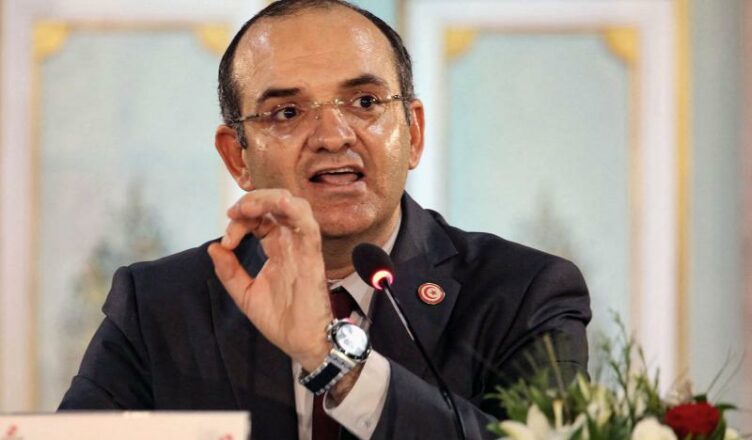On Monday, Tunisia’s electoral commission announced that only three candidates have been definitively approved for the upcoming presidential election, effectively rejecting the administrative court’s decisions that had previously reinstated three other candidates.
Farouk Bouaskar, president of the Independent High Authority for Elections (Isie), stated at a press conference that « President Kais Saïed, Ayachi Zemmal (from the Azimoun Movement – opposition), and Zouhair Maghzaoui (from the Popular Movement – pro-Saïed), whose candidacies were initially approved on August 10, are the only ones confirmed for the presidential vote. »
Bouaskar noted that « the administrative court did not inform the authority of the recent verdicts, » as reported by Tunisian state television. This refers to the court’s decisions accepting appeals from three candidates whose applications were previously rejected by the electoral commission due to incomplete dossiers.
The candidates in question are Abdellatif Mekki, Secretary General of the Workers’ Party and Realization (opposition), Mondher Zenaidi, a former minister under President Zine El-Abidine Ben Ali (opposition), and Imed Daimi, former chief of staff to ex-President Moncef Marzouki (opposition).
As of 12:45 GMT, there has been no comment from the judiciary or the affected parties regarding Bouaskar’s announcement. Earlier on Monday, Mahdi Abdel-Jawad, a campaign member for Zemmal, told local radio Mosaïque that his candidate had been arrested for allegedly falsifying election sponsorships.
According to Tunisian regulations, presidential candidates must secure 10 endorsements from members of the Chamber of Representatives (the lower house of Parliament), or an equivalent number of signatures from the Council of Regions and Districts (the upper house), or 40 recommendations from local, regional, or municipal council heads, or 10,000 endorsements from citizens across 10 different electoral districts, with each district requiring at least 500 voters. Additionally, each citizen can endorse only one candidate.
In August, Human Rights Watch called on the Tunisian government to stop accusing it of « political interference » in the upcoming presidential election. President Kais Saied has repeatedly claimed that Tunisia’s judiciary is independent and that he does not interfere in its operations, while the opposition accuses him of manipulating the judiciary to target political opponents and potential rivals.
Bassam Khawaja, Deputy Director for the Middle East and North Africa at HRW, stated: “After imprisoning dozens of opposition figures and leading activists, the Tunisian authorities have eliminated almost all serious contenders from the presidential race, turning the election into a mere formality,” according to a statement.
Out of 17 candidacy files, the electoral commission approved three candidates: President Kais Saïed, Zouhair Maghzaoui of the Popular Movement, and Zemmal, before the court reinserted three additional candidates into the presidential race.
In April, the National Salvation Front, the largest opposition coalition, announced its boycott of the election, citing a « lack of competitive conditions, » while the authorities maintain that the elections meet standards of integrity, transparency, and fairness.
The opposition has boycotted all outcomes stemming from the exceptional measures initiated by Saïed on July 25, 2021, which included the dissolution of the judiciary and the Chamber of Representatives, the adoption of laws by presidential decree, the approval of a new constitution by popular referendum, and early legislative elections.
Some Tunisian actors view these measures as « a coup against the 2014 revolutionary constitution and a consolidation of absolute individual rule, » while others supporting Saïed see them as « a restoration of the 2011 revolutionary process » that ousted then-President Zine El Abidine Ben Ali (1987-2011).

